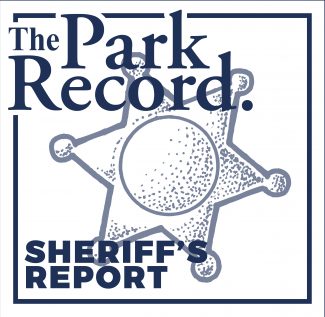Summit County sells an affordable housing unit after beefing up its deed restrictions

Tanzi Propst/Park Record
A year into the initiative to buy, refurbish and resell affordable housing units in Bear Hollow, Summit County recently completed its second deal, selling a two-bedroom, two-bathroom unit for $275,000.
The county has the right of first refusal on the 60 or so affordable units in the development on the west side of S.R. 224 just south of Kimball Junction. It has worked with the Mountainlands Community Housing Trust to improve the legal restrictions on the units and at times bankroll the purchases, said Jeff Jones, the county’s economic development and housing director. Mountainlands has completed two deals of its own, bringing the total in the neighborhood to four.
“OK, so this is No. 4 — a lot of people would say, ‘What impact are you having?’” Jones said. “But look how long it takes to get four (new) units built.”
The county started the push in 2018 because of ineffectual deed restrictions on Bear Hollow properties that, while successful in capping income levels for owners, still allowed the units to be offered on the nightly rental market, effectively undercutting the goal of providing cheaper housing for Summit County residents, Jones said.
Using money from developers that choose to pay a fee in lieu of building the 20% of affordable housing units required in new developments, the county purchases the units and puts more stringent deed restrictions on them while it is the owner. Those restrictions are then passed on to the next owners.
The county purchased the unit for around $295,000, Jones said, put some work into it like replacing the water heater and repainting the deck, then sold it for $275,000.
There are legal provisions that incentivize the unit be sold to someone making 80% of the area median income, restrictions on how much it can be rented for to prevent it from being used as an income source on sites like Airbnb and a 3% cap on how much the unit can appreciate in value annually, Jones said.
There are approximately 60 deed-restricted units within the Bear Hollow development, ranging in price from about $178,000 to $463,817. The market value for the units range between $400,000 and $500,000 for about 900 square feet up to $700,000 for a three bedroom, Jones has said.
In August 2018, the Summit County Council instructed staff to look at purchasing as many units as makes sense. Jones said the homeowners association fees are an important factor in determining the units’ affordability: When the fees approach $500/month, it may make the units unsuitable for affordable housing. But he said they’ll evaluate each as they come up for sale.
The fee developers must pay in lieu of building an affordable housing unit into a project is about $86,000 and that money goes into the account used for this project. Generally, the county can only do one deal at a time, as the account has to be recapitalized by a new sale for the county to be able to purchase another unit, Jones said. In the past, Mountainlands Community Housing Trust has extended its credit line to enter into a deal with county reimbursement coming later.
The nonprofit was also instrumental in writing the new, more effective deed restrictions.
Jones said the location on public transit lines near multiple grocery stores and the Kimball Junction shopping amenities make it a prime location.
The county used its facilities department for the refurbishment work and sold the unit for about $20,000 less than what it paid. Jones said that’s a price well worth paying.
“It’s a lot cheaper to take care of what you’ve got than to go out and build a new unit,” he said.
Sheriff’s Report: AirTag helps deputies with recovery of stolen vehicle
The Sheriff’s Office responded to several other calls between Monday, April 8, and Sunday, April 14, including reports of driving under the influence, public intoxication and active warrants.

Support Local Journalism

Support Local Journalism
Readers around Park City and Summit County make the Park Record's work possible. Your financial contribution supports our efforts to deliver quality, locally relevant journalism.
Now more than ever, your support is critical to help us keep our community informed about the evolving coronavirus pandemic and the impact it is having locally. Every contribution, however large or small, will make a difference.
Each donation will be used exclusively for the development and creation of increased news coverage.




